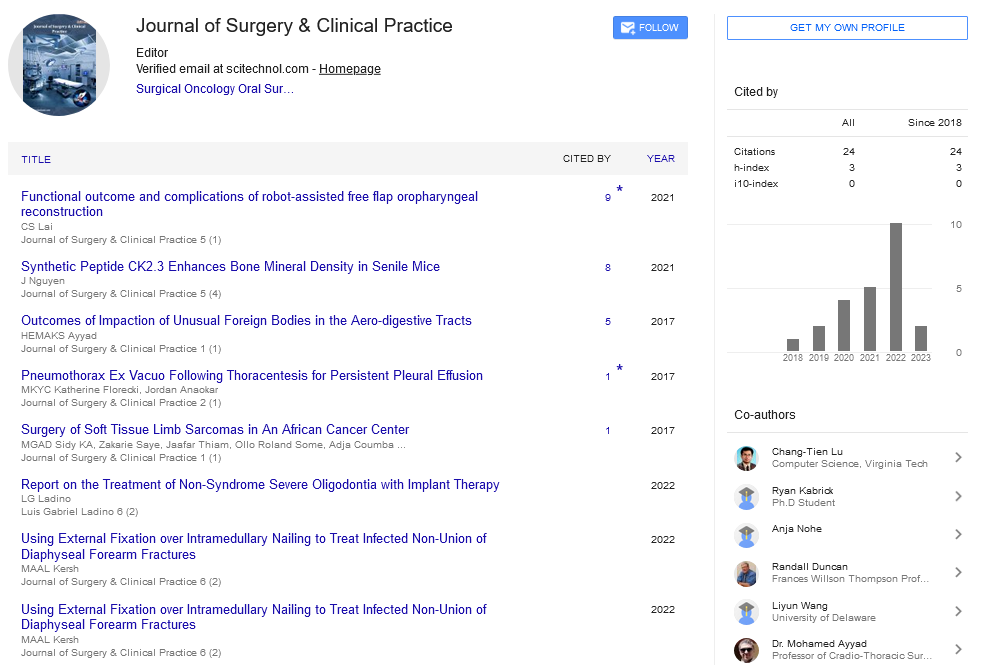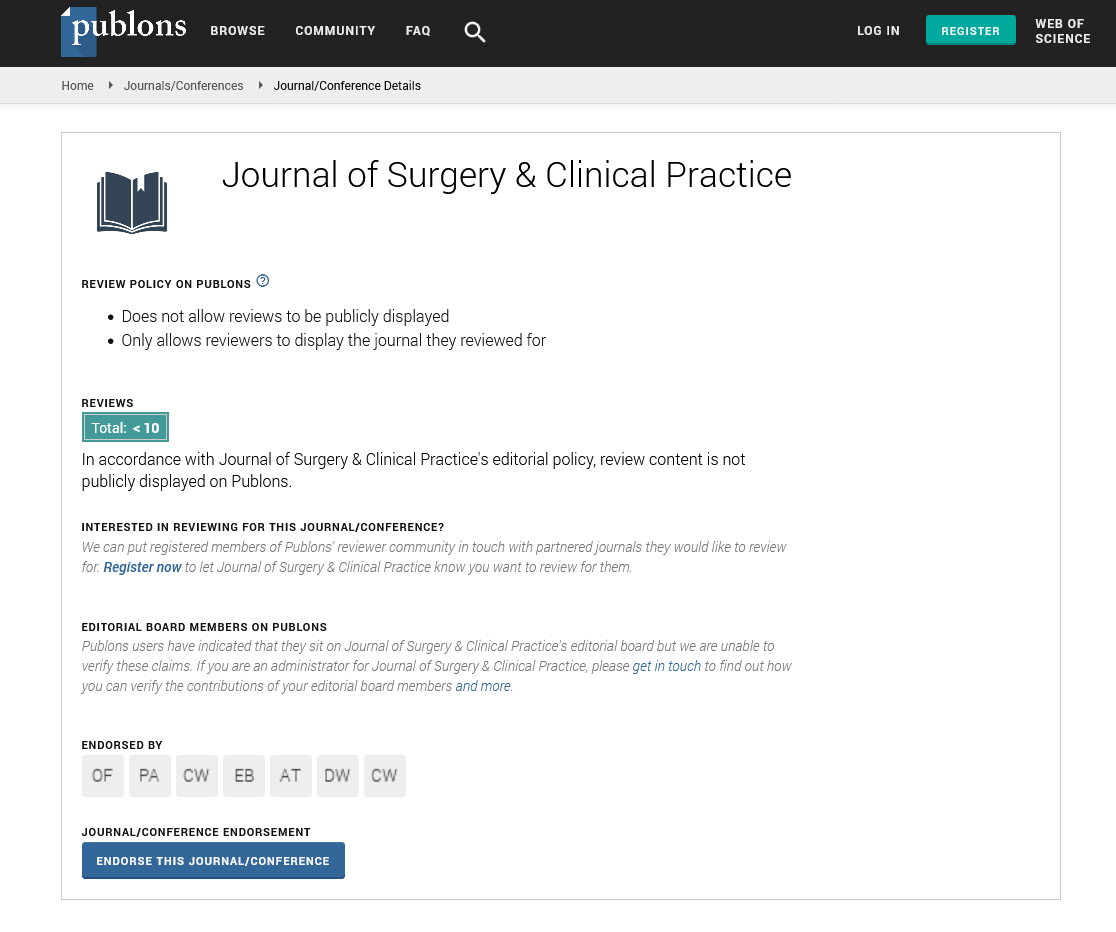Periop pain management for patients taking suboxone undergoing ambulatory surgery
Mary So
Weill Cornell Medical College, USA
: J Surg Clin Pract
Abstract
As the opioid epidemic balloons and becomes an increasing problem in the general population, treatment of opioid abuse with buprenorphine formulations has increased. As a result anesthesiologists are encountering patients who present for routine surgery taking buprenorphine and the subsequent perioperative pain management challenges associated. Case: 37 year old man with a history of GERD and substance abuse presents for repair of a same day, ambulatory, ventral hernia repair. Patient has been on suboxone for substance abuse. After detailed discussion with surgical team, it was decided that combining regional anesthesia, in the form of transverse plane abdominal blocks (TAP), larger opioid dose, and multimodal analgesia, the patient would be able to be sent home same day. After an uncomplicated surgical repair, bilateral TAP blocks were performed and patient was dosed IV hydromorphone for long acting pain medication and sent home with 10mg oxycodone q4hrs. Patient complained of little discomfort postoperatively. With the rising opioid and substance abuse epidemic, particularly those on maintenance therapy, perioperative pain management can lead to unneeded case cancellations or patient dissatisfaction. It is thought the best approach in these situations is to consider adjusting the suboxone dose and utilizing multimodal, and interdisciplinary, pain management modalities for successful pain control.
Biography
Mary So is a board certified Diplomate of the American Board of Anesthesiology (ABA), with specialization in Interventional Pain Medicine. Dr. So has presented at many conferences both nationally and internationally on a wide variety of pain medicine and anesthesia topics including at IARS, ASA and PGA. She is an active member of the American Society of Anesthesiology (ASA), American Society of Regional Anesthesia and Pain Medicine (ASRA), the American Society of Interventional Pain Physicians (ASIPP), and the Eastern Pain Society (EPA).
E-mail: mas9310@med.cornell.edu
 Spanish
Spanish  Chinese
Chinese  Russian
Russian  German
German  French
French  Japanese
Japanese  Portuguese
Portuguese  Hindi
Hindi 
